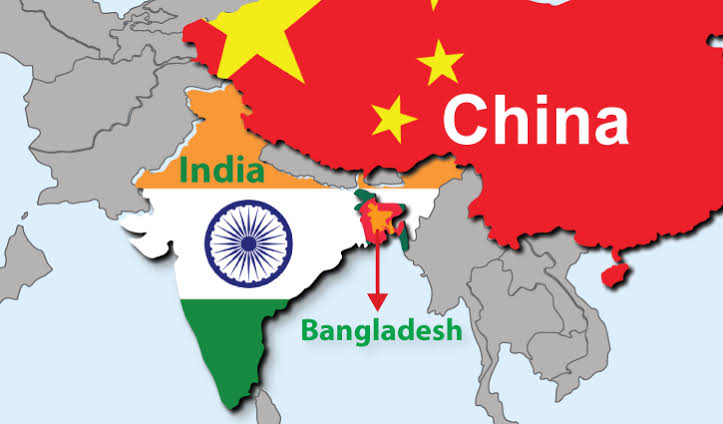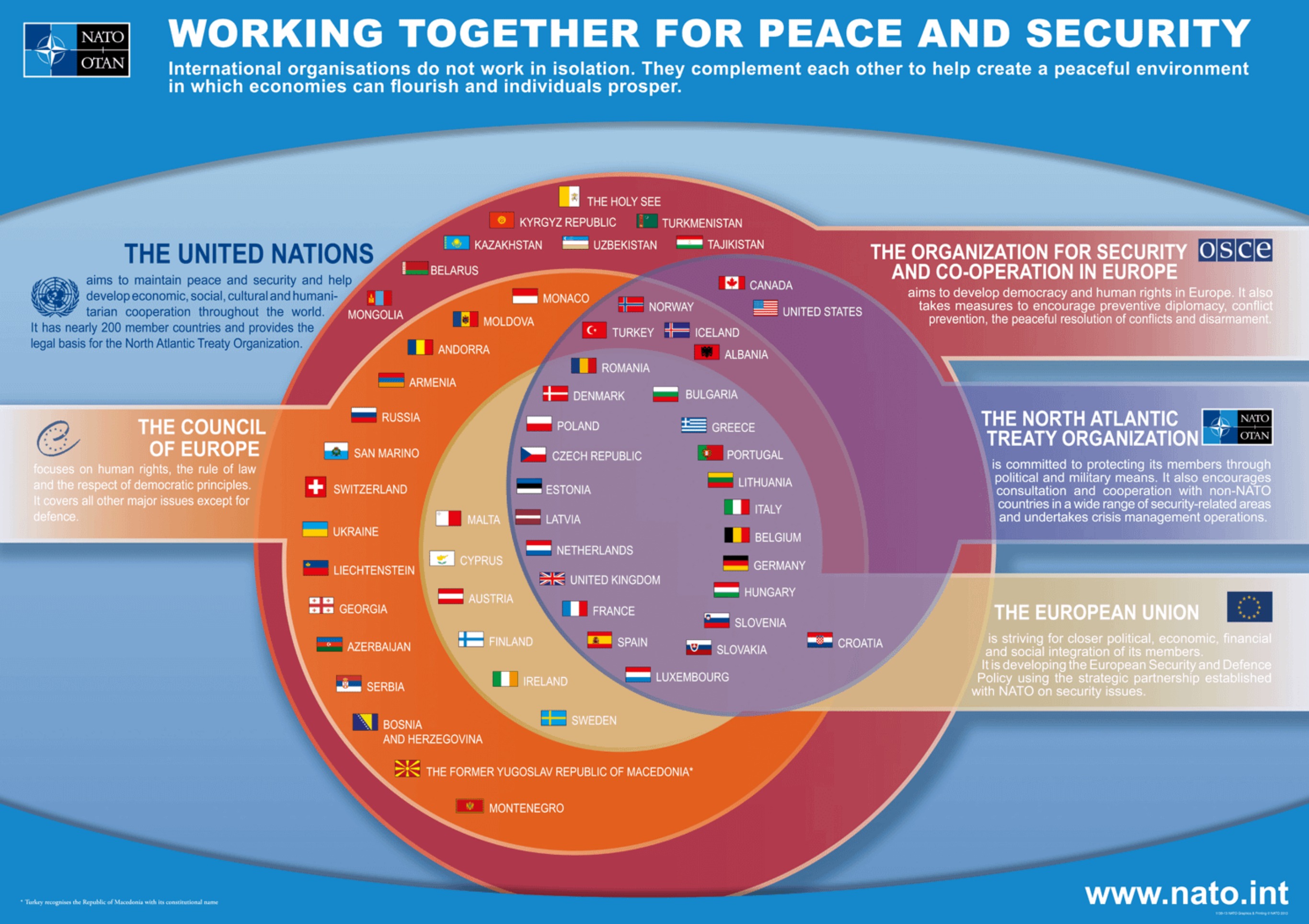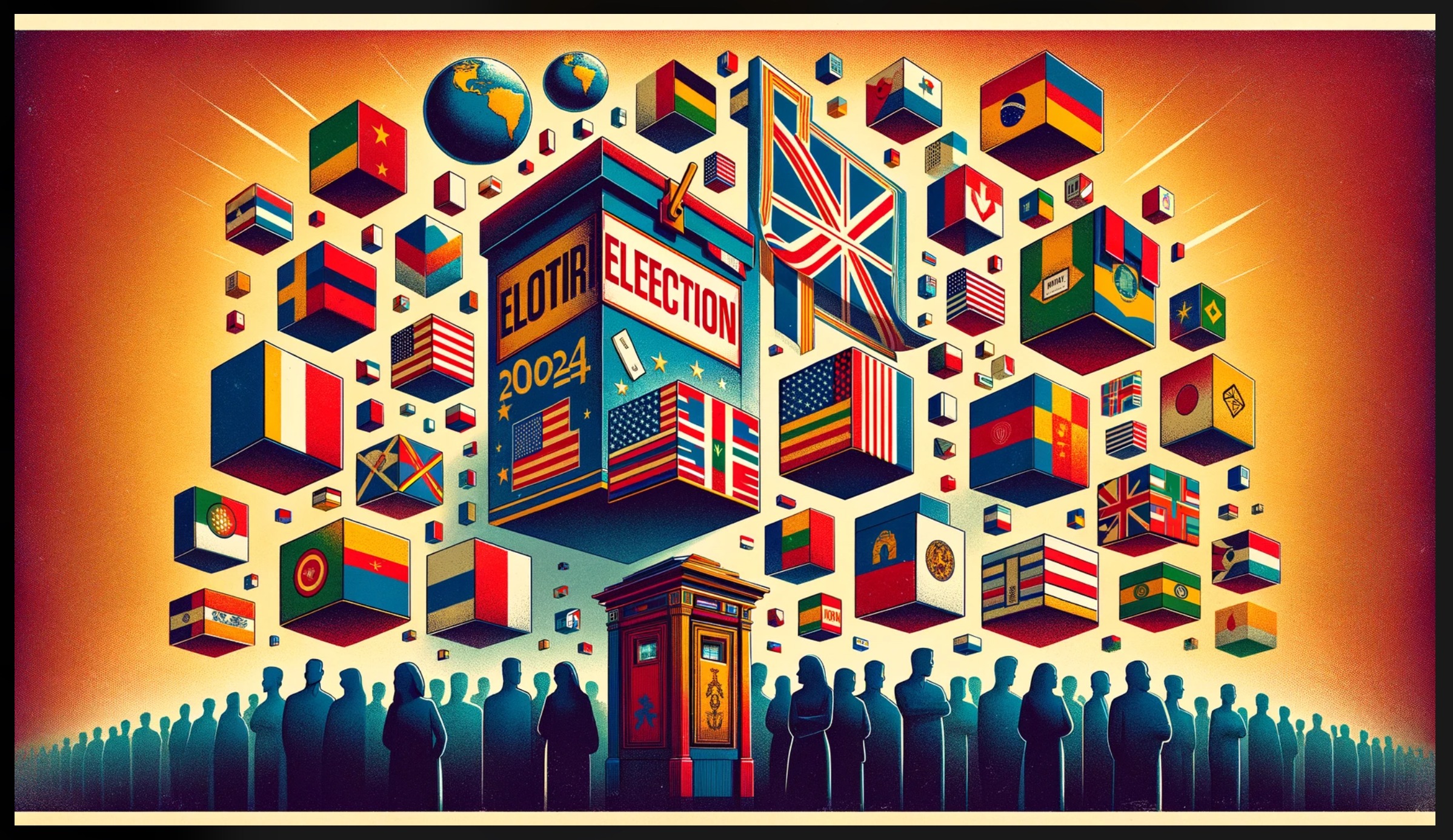Elections This Year in 2024
As the world turns its calendar to ‘24, a pivotal year awaits in the world of international relations. Over 60 countries will hold elections, a situation that presents a unique opportunity to watch the ever-evolving landscape of global politics. The outcome of these elections could potentially reshape the world order, influencing everything from economic policies to international alliances. My perspective hinges on the belief that each election, be it in a geopolitical superpower or a small nation, contributes to the intricate puzzle of global governance. This year, the continuity or change of political leadership across the world will offer a fresh canvas upon which the future of international relations will be painted.
Read about the elections and two more key situations to follow in 2024 on RI en Proceso.
Here’s a list of just some of the elections that will be taking place. They’re organized by month and following each country is (Type of the election, Date if known).
- January: Taiwan (Presidential, 13), Finland (Presidential, 28), Bangladesh, Bhutan, Comoros, Tuvalu (General, 26).
- February: Pakistan (General, 8), South Africa, Belarus, Senegal, Azerbaijan, Indonesia (General, 14), Dominican Republic, Portugal (Azorean regional, 4).
- March: Iran (Legislative, 1), Russia (Presidential, 17), Ukraine, El Salvador.
- April: India (General).
- May: Panama, Lithuania (Presidential, 12).
- June: Belgium, Mexico (General, 2), Iceland (Presidential, 1), European Union (Parliamentary, 6-9).
- July: Rwanda.
- September: Austria, Croatia, Germany (Saxony, Thuringian, Brandenburg State Elections on 1, 22), Russia (Regional, 8).
- October: Mozambique, Georgia (Parliamentary).
- November: United States, Tunisia, Romania (Presidential, November).
- December: South Sudan, Algeria, Ghana, San Marino (General).
Additionally, elections are expected in the UK, Namibia, Togo, Sri Lanka, Venezuela, and Slovakia in 2024, but dates are unconfirmed (ChatGPT, 2024).

Bangladesh’s 2024 Elections: A Turbulent Start
As the global electoral calendar of 2024 begins, Bangladesh’s general elections have drawn significant attention, marking the commencement of this year’s series of crucial democratic exercises. The early stages of these elections have already been marked by controversy and political tension, setting a complex tone for the year’s electoral landscape.
According to recent reports from CNN, the Bangladeshi opposition parties have decided to boycott the election. This decision comes from deep-rooted concerns about the fairness and transparency of the electoral process in the Bangladesh. The opposition’s move to boycott is a significant political statement, signaling distrust in the system and casting doubts over the legitimacy of the electoral outcomes.
This development in Bangladesh is not an isolated incident; rather, it reflects a broader trend of political polarization and challenges to democratic processes observed globally. The boycotting of elections by major political factions can lead to a crisis of representation, breaking down the foundational principles of democracy and potentially leading to civil unrest.
From a geopolitical perspective, the situation in Bangladesh could have wider implications, particularly in South Asia. It may influence regional dynamics, especially considering Bangladesh’s strategic position between the growing powers of India and China. The political stability of Bangladesh is crucial for maintaining regional balance and ensuring economic cooperation in this increasingly significant part of the world.

The international community, particularly organizations advocating for democratic norms and fair elections, will likely monitor the situation closely. There may be calls for dialogue and reconciliation to ensure that the electoral process in Bangladesh is inclusive, representing a diverse range of political opinions and interests of their population.
Neorealist Analysis of 2024 Elections
From a Neorealist perspective, the 2024 elections are not just about domestic agendas or local politics; they are a series of strategic moves for each international actor. Neorealism, primarily concerned with power and the anarchic nature of the international system, posits that states and their institutions are the primary actors in an endless quest for security and power. Each election represents a potential shift in the balance of power, altering the dynamics of international relations.
Take, for example, the presidential election in Russia. It’s not just about who will lead Russia, but how the leadership will continue or alter its stance on international aggression, the war in Ukraine, energy politics, and its influence in Eastern Europe. Similarly, the U.S. elections could redefine its role on the global stage, affecting NATO dynamics, Asia-Pacific security, and international trade policies.

In Asia, the Indian general elections and the Taiwanese presidential election will be crucial. India’s stance as a rising global power and its position vis-à-vis China and the U.S. could be influenced by the electoral outcome. Taiwan’s election, amidst the shadow of Chinese assertiveness, could redefine cross-strait relations and impact the security dynamics in the Indo-Pacific region.
Moreover, the European Union’s parliamentary elections are set to decide the future course of European integration and its collective foreign policy, especially in the context of rising nationalism and populism within member states.
From a Neorealist standpoint these elections are pivotal events that will determine how power is distributed globally. This theory urges us to watch for shifts in alliances, changes in military and economic strategies, and the emergence of new power blocs.
Conclusions:
- The 2024 elections around the globe are not just about who gets to lead for the next few years. They are about how the axes of global power will tilt, how security dilemmas will unfold, and how the international order will be negotiated in the years to come.
- The neorealist lens reminds us to view these elections through the prism of power, anarchy, and institutions: core concepts that continue to define the globalization of international relations.
References:
- ChatGPT. (n.d.). OpenAI. https://chat.openai.com/#
- Special, B. (s. f.). Bangladesh under pressure from India, China over joining Quad. Business Insider Bangladesh. https://www.businessinsiderbd.com/world/news/5593/bangladesh-under-pressure-from-india-china-over-joining-quad
- Wikipedia. (n.d.). List of elections in 2024. Retrieved from https://en.wikipedia.org/wiki/List_of_elections_in_2024
- Voice of America. (n.d.). World Elections 2024. Retrieved from https://www.voanews.com/
- Council on Foreign Relations. (n.d.). Ten Elections to Watch in 2024. Retrieved from https://www.cfr.org/









No responses yet